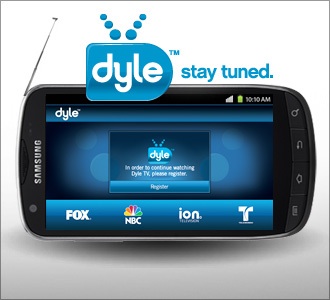Why should (insert CE maker's name) care about broadcast TV?
The professional video industry's #1 source for news, trends and product and tech information. Sign up below.
You are now subscribed
Your newsletter sign-up was successful
With Mobile DTV off to a slow start in the U.S., the National Association of Broadcasters (NAB) appears to be losing patience and-sensing it could lose more spectrum-is now urging wireless carriers to "voluntarily provide all consumers with the option of receiving FREE broadcast TV and radio signals on mobile devices." In other words, get those ATSC A/153 receiver chips inside those mobile phones, now.
Huh? What leverage does the NAB think it has?
The NAB has been pleading with Congress to put an FM radio chip in every phone (for delivering emergency alert information), but the political and financial will are still not there to make it happen. Likewise, mobile DTV will only be successful when it's available as a free app on a popular cell phone offered by a major carrier and it doesn't come from the Internet. Consumers don't mind commercials in their hands, the NAB says, as long as you are watching a TV signal directly from the local station's transmitter.

What we have to collectively ask ourselves as an industry is: "Why should Apple, Nokia, Samsung, or any other consumer electronics company, care about broadcast TV?"
Well, what if broadcasters were to make agreements with the local cell carriers to use their towers to supplement Mobile DTV coverage. Problematic propagation issues would be solved and the Telcos get a new revenue stream. Then the industry works with the CEA to encourage Apple and Samsung to include the DTV chips in their most popular models. Apple and Samsung, which both have interests in programming their own channels, could also reap new revenue streams.
Initially, the NAB fought the wireless industry-including IT-centric companies like Apple, Google and Microsoft, that seek to take away broadcast spectrum for new types of consumer networking devices-and figured broadcasters would distribute the signals themselves. They didn't need a Telco carrier; just leave their significant (6 MHz x 1,800 full-power TV stations alone) slice of the bandwidth pie alone.
Well, times have changed and the power to dominate has shifted. The wireless industry, commissioned a study this year that stated its members either directly and indirectly support 3.8 million jobs. It also found that the industry helped contribute $146 billion to the annual U.S. gross domestic product from June 2010 to June 2011 and projected it could generate as much as $1.4 trillion in economic gains over the next decade. I'm not sure the broadcast industry could claim that-even counting retailers that sell televisions.
The professional video industry's #1 source for news, trends and product and tech information. Sign up below.
Local broadcasters can't succeed on their own in today's wireless world. They'll have to give a little. Maybe a lot. What's lacking right now is a reason why (insert CE company name) should care about Mobile DTV.
The NAB and the industry at large has to devise that reason to care.
